The personal cloud is all about context
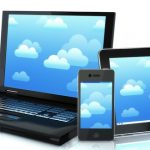
Gartner is back thumping about how the cloud will replace the PC as personal hub by 2014, and, whoa, that's not exactly so far away. I wrote the "ding dong, the PC's dead" last month. After identifying five trends then, the analyst firm today highlights three things cloud vendors had better watch out for.
Simply stated: "Mobility and location"; "platform independence"; and "seamless synchronization". That aptly describes what the cloud-connected -- oh, post-PC, if you insist -- era is all about: Personal computing anytime, anywhere on anything. However, many cloud offerings fall short of that definition and the three must-have characteristics Gartner defines.
Google Galaxy Nexus first-impressions review
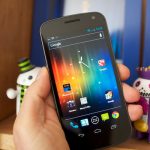
Two days ago, May 4, I received the Samsung Galaxy Nexus -- the 16GB HSPA+ model Google started selling direct last week. I'm not alone. Many of you ordered this phone, too. This first-impressions post extends my December review of the 32GB Verizon LTE model.
I will say straight up that out-of-box experience on AT&T is nowhere as good as Verizon. Network is huge factor. Audio quality is crisp and clear on Verizon compared to occasional hissy-fits on AT&T. Data speed isn't comparable, so far -- that's round and about San Diego and communities East and South, La Mesa and Lemon Grove, respectively. I expected at least 10Mbps HSPA+ data speed, based on my wife's Samsung Galaxy S II Skyrocket (before AT&T turned on LTE service here). I've yet to top 3.5Mbps on AT&T HSPA+ compared to an average 20Mbps over Verizon LTE. If data throughput is a priority, Galaxy Nexus HSPA+ -- over AT&T anyway -- is not for you. However, if you want a GSM network phone that is unlocked and contract-free and offers the best of Android, Google Galaxy Nexus is an exceptionally good choice. But expect to make a few compromises.
Samsung Galaxy Tab 2 7.0 review
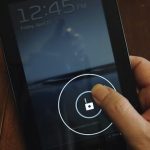
I really like reviewing products, but don’t have the time or patience to measure battery life or benchmark the CPU, etc. I'm more interested in how a product like Galaxy Tab 2 7.0 fits in the scheme of things. How it suits real people.
So far, I think this tablet has gotten an unfair shake among major media. But the reviews at shopping sites tell the real story. This is a nice little tablet. The price is right, too, and it comes with Android 4.0 (aka Ice Cream Sandwich).
Is iPhone 4S obsolete?
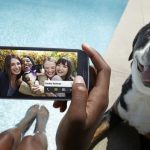
I repeatedly ask you questions in headlines, because I ask myself. This one is top of my mind following today's Samsung Galaxy S III announcement. My eyes bugger at the differences in size, features and most importantly benefits -- the majority of those coming from Samsung skinning Android 4 into seeming oblivion. It's hard to discern a way that Galaxy S3 isn't superior to iPhone 4S. If iOS 5 looked antiquated before, and it surely did, Samsung's TouchWiz-modified Ice Cream Sandwich makes it suddenly ancient.
But the question is bigger than hardware or software. Samsung isn't the world's No. 1 handset maker overall and in smartphones by lark. Apple is known for focusing on delivering benefits that matter, sometimes at the expense of hardware capabilities, and truly aspirational marketing. Galaxy S III evokes these qualities, with something more: real benefits without sacrificing hardware capabilities while using software to enrich the human experience. Then there's the aspirational marketing, as seen in the embedded video. Samsung does something Apple-like, only better.
The Xbox console will soon be free
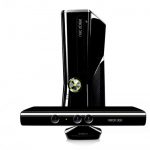
Microsoft wonk Tom Warren reports that a new Xbox 360 and Kinect bundle will be offered at $99 with a two-year Xbox Live Gold subcription beginning next week. If this proves true, it will be the first example of a video game console using the mobile phone carrier subsidy model.
According to Warren's sources, the deal will only be available at Microsoft Stores, and it will include the 4 GB Xbox 360 console with a Kinect Sensor. The cost of a two-year Xbox Live Gold subscription is approximately $120.
Why are Amazon Kindles vanishing from Target?

Target confirmed on Wednesday earlier reports that it is discontinuing sales of Amazon products, most notably the Kindle, starting in Spring 2012. First reported by The Verge overnight Wednesday, the move is a hit to Kindle's retail store strategy overall and effectively ends a long-term partnership between the two companies.
Amazon powered Target's website up until last year, and Target was the first to carry the Kindle at retail back in June 2010. The Kindle Fire was Target's best selling tablet on Black Friday last year, but that didn't stop the retailer from kicking Amazon to the curb.
How do we just fix IBM?

Fourth in a series. Well it can’t be done from the inside, so it has to be done from the outside. And the only outside power scary enough to get through the self-satisfied skulls of IBM top management is IBM customers. A huge threat to revenue is the only way to move IBM in the proper direction. But a big enough threat will not only get a swift and positive reaction from Big Blue, it will make things ultimately much better for customers, too.
So here is exactly what to do, down to the letter. Print this out, if necessary, give it to your CEO or CIO and have them hand it personally to your IBM account rep. Give the IBM rep one business day to complete the work. They will fail. Then go ballistic, open up a can of whoop-ass, and point out that these requirements are all covered by your Service Level Agreement. Cancel the contract if you feel inclined.
Google has lost control of Android
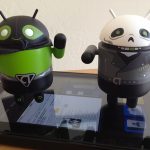
There was great news on the Android front this week. Samsung reported blow-out earnings, with smartphones -- the majority running Android -- accounting for nearly three-quarters of profits. Meanwhile comScore data spotlights the growing US Android tablet market. Additionally, Google started selling Galaxy Nexus direct, with no carrier contract, for $399. But all three share something in common -- what they foreshadow. Google has lost control of Android, and must swiftly act to regain it.
Forrester Research predicts that proprietary Android will surpass the Google Android ecosystem by 2015. Stated differently, Google's open-source mobile platform risks fracturing into multiple fatally fragmented Android ecosystems. Not one but many. There is little time for Google to demonstrate decisive leadership that can keep the ecosystem largely intact.
There is no Apple without Steve Jobs
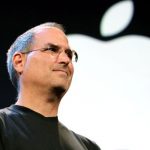
That's essentially George Colony's contention. "Apple will decline in the post-Steve Jobs era", the Forrester Research analyst opines. The sentiment is stunning in context of Apple's first two quarterly results following Tim Cook's ascension to chief executive. The company generated more revenue ($85.83 billion) than all fiscal 2010 ($65.23 billion). Net income ($24.12 billion) exceeds that of fiscal 2009 and 2010 combined ($22.25 billion). That's hella good performance.
Yesterday, I argued that "Apple is better off without Steve Jobs", in part based on recent performance that derives from Cook's running logistics for the better part of three years. But I also believe that no one knows the future, and that good reporting is about looking from different viewpoints. So today I offer counterpoint to yesterday's prognostication. Yeah, I'll rebut myself, something I frequently do. You just don't see the process, and Colony's argument is good foundation.
Apple is better off without Steve Jobs
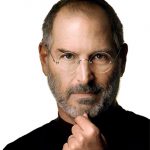
For all practical purposes, Tim Cook has run Apple since cofounder, and then CEO, Steve Jobs' January 2009 medical leave. Sure Jobs returned six months later and continued his micromanaging ways, but Cook, as COO, continued responsibility for day-to-day operations. He already had distinguished himself as a logistics genius, at Compaq and for a decade at Apple, before assuming Jobs' daily role -- and becoming CEO in August 2011. Cook's influence on the current state of Apple cannot be understated.
As I write Apple shares are up, following yesterday's stunning fiscal 2012 second quarter earnings results; net income rose a stunning 94 percent year over year. The stock closed down 2 percent yesterday, but shot up more than 7 percent in after-hours trading. Apple closed at $560.28 yesterday and opened at $615.99 today. But the measure of Cook's success, and why he is the better man to run Apple, is much more than rising share price. It's really about performance.
Macs may not get PC viruses, but they sure can spread them

What do sexually transmitted diseases and Mac viruses share in common? Surprisingly lots, according to security software developer Sophos. People can spread both without exhibiting symptoms, and the infection rates for "Macs carrying malware and level of Chlamydia infection amongst young people" are about the same.
Say what? That's the question asked in BetaNews group chat this morning about the seemingly strange correlation. But it makes sense to me. My colleague Tim Conneally gets it, too. He observed (after doing a little research): "One in 4 people with Chlamydia have no symptoms. They're saying it's spreading but not affecting the host". That's exactly Sophos' point. The firm found a shocking number of Macs infected with PC viruses, in a 100,000 sampling. The Macs are immune but can infect Windows PCs.
Microsoft enterprise licensing changes favor Windows RT, put Android and iOS in their place

If you can't beat them, manage them. It's a strategy that has worked well for Microsoft in the past, and it is emerging as a key element in announcements last week about how Microsoft will license Windows 8 in all its variations, including the x86 consumer, Professional and Enterprise editions, the embedded Windows RT and the cloud-based Windows Intune.
While Microsoft's primary goal is to stop Apple's growth in the enterprise, which it will do by tilting licensing policies in favor of Windows tablets, the company has a Plan B that will help monetize Apple and Android devices in the enterprise through management.
PCs need model years, just like cars

Windows PC makers will start unveiling their first 2013 models from today. They are all desktops built around the maiden Ivy Bridge processors out of the chute, which Intel announced late this morning. Ivy Bridge is the working name for Intel’s 2013 models.
Intel decision-makers chafe whenever I refer to their processor generations as model years. In fact, executives throughout the PC ecosystem universally hate the term. They’d better all start embracing it, though. Because they’ll need to adopt a model-year mentality if they want to ensure continuing growth.
Thank you, JK Rowling

Sometime ago, I pledged to wait on reading the Harry Potter series until it came out as ebooks. I was ready and willing for October's planned debut on Google Books, but that was cancelled last minute. What happened instead mindboggles. In late March, author JK Rowling opened the Pottermore Shop to sell the ebooks directly -- in formats for most any device and with no onerous digital rights management. Let me emphasize that last bit: no DRM.
I've meant to opine since buying the Harry Potter ebooks as a set -- and affordably priced at that -- when Pottermore Shop opened 25 days ago. The universal distribution approach, fair pricing and DRM-freeness set apart the most successful fiction series in history from most every other popular literature available today in digital formats. Rowling's ebooks mark a watershed moment in digital publishing that could eventually lead to the end of onerous DRM. Remember, music started that way, but mostly is DRM-free today.
Windows Phone holds back Nokia?

That's the sentiment expressed by a commenter to an exciting promotional video Nokia uploaded to YouTube today. The Finnish handset maker shot the promo using the new Nokia 808 PureView, which sports 41-megapixel camera. The comment: "This is true Nokia innovation. Windows Phone is just holding them back". My question: Do you agree with either or both sentiments?
I'm a big Nokia fan, who relished the benefits of great camera capabilities long before iPhone even had a crappy one. I've owned E71, N79, two different N95s, N96, N97 and N900. Nokia's N Series set the standard for mobile phone photography that most rivals have yet to catch up -- and that includes the N8 and N9, which capabilities should shame every iPhone 4/4S photographer. I clamor for Nokia 808 PureView but won't buy one. Symbian holds me back, or perhaps I should say Windows Phone. Compelling as the smartphone may be, Symbian is a dead end. Windows Phone is Nokia's primary mobile OS now.
Recent Headlines
Most Commented Stories
© 1998-2025 BetaNews, Inc. All Rights Reserved. About Us - Privacy Policy - Cookie Policy - Sitemap.